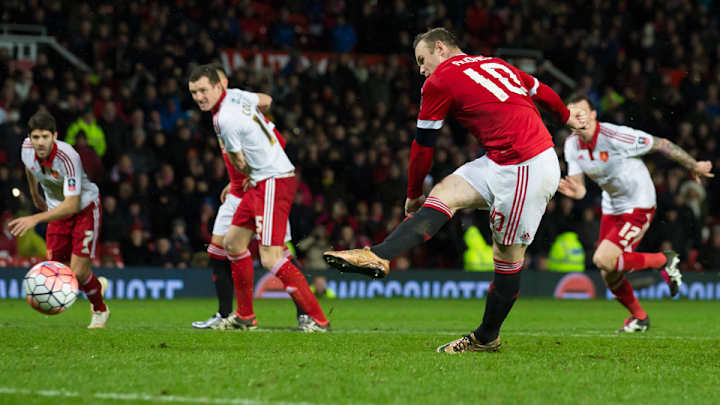FA Cup's declining status to continue in modern Premier League world

As the cliché goes, the third round of the FA Cup is the most romantic weekend of the season; but it’s some time since the cliché has been true.
Instead, a new tradition has sprung up, that of bemoaning the FA Cup’s declining status. The first week of January is now when English football gets together and makes some half-baked suggestions about how to restore the competition’s relevance.
It seems bizarre now that the FA Cup was until the late 1980s the premier competition of English football. There might have been an acceptance that the league determined who the best side was, but the glory was in the Cup. Cup-final Saturday was the showpiece event of the year, screened on two competing television channels. The third round was chaotic, the moment at which 20 teams form outside the top two divisions had their chance of toppling the elite.
EPL Notes: Leicester City in a rut; Diego Costa shines for Chelsea
Back in the 80s, Bournemouth beating Manchester United and York City beating Arsenal felt like landmark events, David toppling Goliath just as Worcester City had once beaten Liverpool, Yeovil had beaten Sunderland and Walsall had beaten Arsenal.
The great shocks were part of the folk culture of the English game, whispered about in awed tones every time third-round weekend came round.
There have been a range of suggestions for how to give the FA Cup back its luster, ranging from the relatively sensible to the gimmicky, but the truth is that football has changed. It’s not just that the Goliaths are bigger and the Davids are smaller, making shocks less likely, it’s that the Goliaths don’t really care about the Cup anymore. When they do lose, it may be humbling in the short term, but it’s not a stain that will tarnish the club’s reputation through the decades as it once did.
It’s understandable that those of us old enough to remember the tournament’s glory days laments its passing, but clubs can hardly be blamed if they prioritize the league. The FA Cup winners take home £1.8 million in prize money; Last season, Chelsea claimed £99 million for winning the league. Romantics may choose to pretend it isn’t true, but a financial disparity like that matters.
As Messi wins another Ballon d'Or, his evolution as a superstar continues
And that’s without taking into account television rights and commercial and sponsorship opportunities; the league is simply far more marketable because there are fewer mismatched games, and that’s the point that must always been born in mind: Bradford City beating Chelsea at Stamford Bridge last season was one of the great FA Cup shocks, but such games are called shocks for a reason–they don’t happen very often.
For every glorious upset there are 10 or 20 mundane wins for the better side.
It’s hard also to avoid the thought that part of the allure of the FA Cup was that for a long time the final was the only match to be televised live. Even by the late 80s, there would rarely be more than a dozen league games screened. That added to the sense of showpiece about the final: it was just about the only day when England as one gathered to watch the same game–that sort of event television simply doesn’t exist in the same way any more.
Sunderland’s manager Sam Allardyce summed up the logic of those managers who fielded significantly weakened sides at the weekend. Sunderland lost 3-1 to Arsenal in the FA Cup, with Allardyce understandably prioritizing Wednesday’s game against Swansea City, which looks like being vital in the battle against relegation.
“If the Premier League decides to put a stupid fixture midweek when they don’t bloody need to then I haven’t got much choice [about making changes at Arsenal],” Allardyce said. “That’s diabolical. Why put one in there? We’ve got the rest of the season after that and we’ve just done six games in 24 days. We’re flogging the lads. Injuries are more and more apparent every year, but it’s completely ignored by the Premier League and they fit a fixture in during midweek after the New Year.
“For me, if you want us to respect the FA Cup then you don’t put a Premier League fixture there, do you?”
Salman will be FIFA president and more: 12 predictions for 2016
He’s right, of course, although the FA Cup’s position at the end of the heavy Christmas program (the third round is usually played on the first weekend in January but was delayed this season because of New Year’s Day falling on a Friday, which meant the traditional New Year's program was played on the weekend of January 2-3) often feels like respite for Premier League managers who can rest weary players against lesser opposition.
This season the calendar has conspired with the Premier League and modern tastes to make the FA Cup seem more irrelevant than ever. It will gain momentum from the last eight onwards as it always does, but the simple fact is that the days when it was the piece of silverware everybody wanted have passed. Life and football have moved on.
